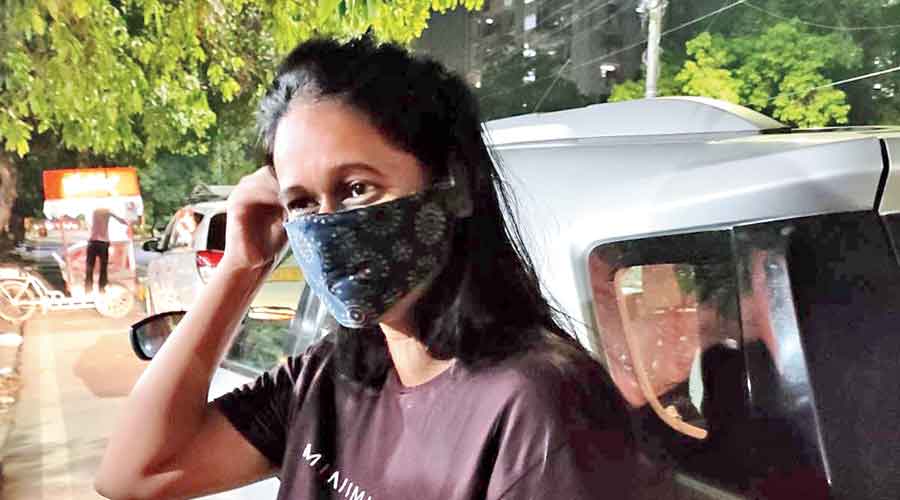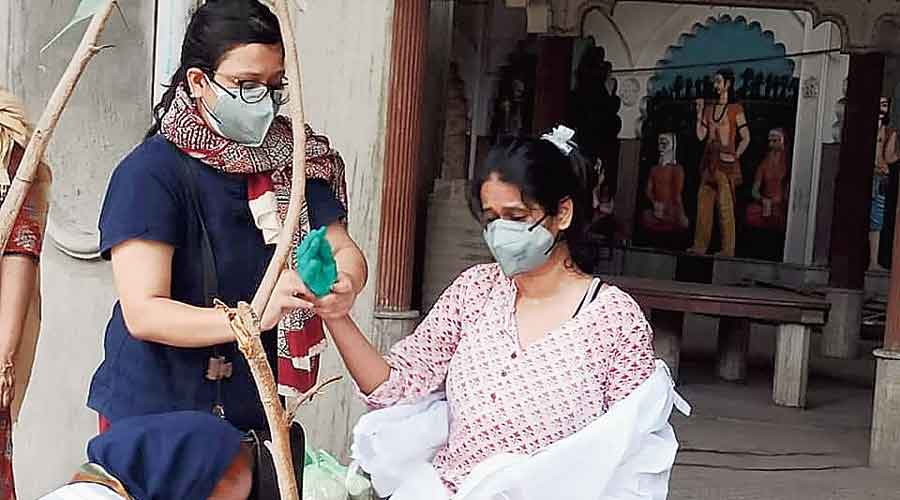Delhi police on Wednesday petitioned the Supreme Court to cancel Tuesday’s bail to three student anti-CAA protesters, and appeared to be relying on certain technicalities in the trial court to try and delay their release from prison.
JNU students Natasha Narwal and Devangana Kalita and Jamia Millia Islamia student Asif Iqbal Tanha were still in custody late on Wednesday night, with the trial court listing for Thursday the police’s unusual plea for more time to verify their addresses and various details of those who have stood surety for them.
The apex court is expected to hear on Friday the police’s challenge to Delhi High Court’s bail order, with solicitor-general Tushar Mehta likely to appear for the government. If the trial court grants the police’s request or the hearing stretches further, the accused are unlikely to be released before the apex court delivers its verdict.
CPM politburo member Brinda Karat, one of the two people who stood surety for Natasha, termed the delay in release an attempt by the police to “sabotage and subvert” the high court order.
She told The Telegraph the police had visited the homes of those standing surety, including hers, twice — on Tuesday night and Wednesday morning — and verified identity cards and bank documents.
“Yet at 1pm today (Wednesday), they said (before the trial court of Shahdara district’s additional sessions judge Ravinder Bedi) they were not ready. The hearing was online but the six of us standing surety were in court, as required for verification,” she said.
“Around 3.15pm, the police told the court that only one surety for each of the students had been verified, and the second had not. This is not true as they had visited the others standing for surety — two JNU professors, renowned activist Gautam Bhan, and two other residents of Delhi — and verified whatever they needed.”
She added: “What’s most bizarre is the police saying they need to verify the permanent addresses (of the students), take a Rajdhani train to Assam to verify Devangana’s address, which would take time. All these students are residing in Delhi, and were arrested in Delhi…. When special public prosecutor Amit Prasad arrived, he was unaware that the police had filed such an affidavit.”
Natasha is from Rohtak in Haryana, Devangana is from Assam, while Tanha is from Jharkhand. Legal sources said Delhi police were free to call up their counterparts in these states to have the addresses verified instead of despatching teams.
A former Delhi High Court judge, Justice Jaspal Singh, told this newspaper: “In my long years as a judicial officer since 1964 and as a high court judge for eight years, I have never seen a magistrate ask the police to verify a bail bond or a surety being verified. Courts see if the surety has proper control of the accused… so he does not abscond. This is entirely in the domain of the court.”
HC jab queried
Delhi police, who are under the control of the Centre, have in the plea to the apex court argued that the accused, charged under the anti-terror law UAPA, could tamper with evidence and intimidate witnesses unless their bail was quashed.
The police have also protested Delhi High Court’s observation on Tuesday that the State was blurring the line between the right to protest and terrorist activity in its “anxiety to suppress dissent”.
Their petition called the observation “an insinuation, albeit unfounded and perverse, that the present case was registered by the government to suppress dissent”, and that it “was a false case”.
While granting bail, the high court had said the accused would be released after the trial court had satisfied itself that all the bail conditions and requirements could be met.
One requirement being that the police should be able to trace the accused at any time, the cops sought time to verify their addresses.
Tanha’s lawyer Siddharth Aggarwal said: “Not only did the police seek more time, they also sent a notice to the Unique Identification Authority of India to verify the Aadhaar numbers of the students. This is unprecedented. The law of the land is that those in custody have to be released within 24 hours of getting bail.”
Karat said: “When the police visited this morning, they said they would take statements from my neighbours as well.”
The Delhi police did not respond to queries from this newspaper.
The lawyers for Devangana and Natasha had moved an application before Bedi on Wednesday for their immediate release. In the day’s order, Bedi said the order on bail could not be passed because of “heavy board of bail applications listed before the undersigned”.
On Tuesday, the high court had questioned the police’s purported evidence against the three students, arrested in April last year and charged with inciting the February 2020 communal riots in Delhi after they participated in protests against the new citizenship matrix.
“We are constrained to express, that it seems, that in its anxiety to suppress dissent, in the mind of the State, the line between constitutionally guaranteed right to protest and terrorist activity seems to be getting somewhat blurred. If this mindset gains traction, it would be a sad day for democracy,” the bench of Justices Siddharth Mridul and Anup Jairam Bhambhani had observed.
Natasha, 32, Devangana, 31, and Tanha, 25, were all implicated in several cases. The trial courts had withheld regular bail only in the UAPA case.
Devangana and Natasha are in Tihar jail. Tanha, a BA (Persian) student, is on interim custody bail at a south Delhi hotel so he can write his final semester exams.
Devangana’s husband Andre Ling said: “It’s been an exhausting and painful year of separation, and when we were on the cusp of justice finally being served, we’re again thrown into this heart-wrenching uncertainty.”
Bail the rule
Normally, the top court cancels bail only in extraordinary circumstances, having repeatedly reaffirmed the maxim laid down decades ago that bail is the norm and jail the exception.
Earlier this month, the Supreme Court had upheld citizens’ “right to criticise or comment upon the measures undertaken by the government and its functionaries” while quashing the sedition case against veteran journalist Vinod Dua.
In their appeal, the Delhi police have argued that the high court’s reasoning that UAPA provisions apply only to matters that have a profound impact on the “defence of India” is “an irrelevant consideration to grant bail”.
According to the police, the high court order, “through an erroneous interpretation has watered down the provisions of UAPA which will have wide ramifications and will affect all the cases registered by the National Investigating Agency under the provisions of UAPA”.
The Delhi government’s standing counsel at Delhi High Court, Rahul Mehra, tweeted: “Unfortunate that the court below chose to seek verification of the accused by the police when both of them ought to have been released fm judicial custody yesterday itself….”












